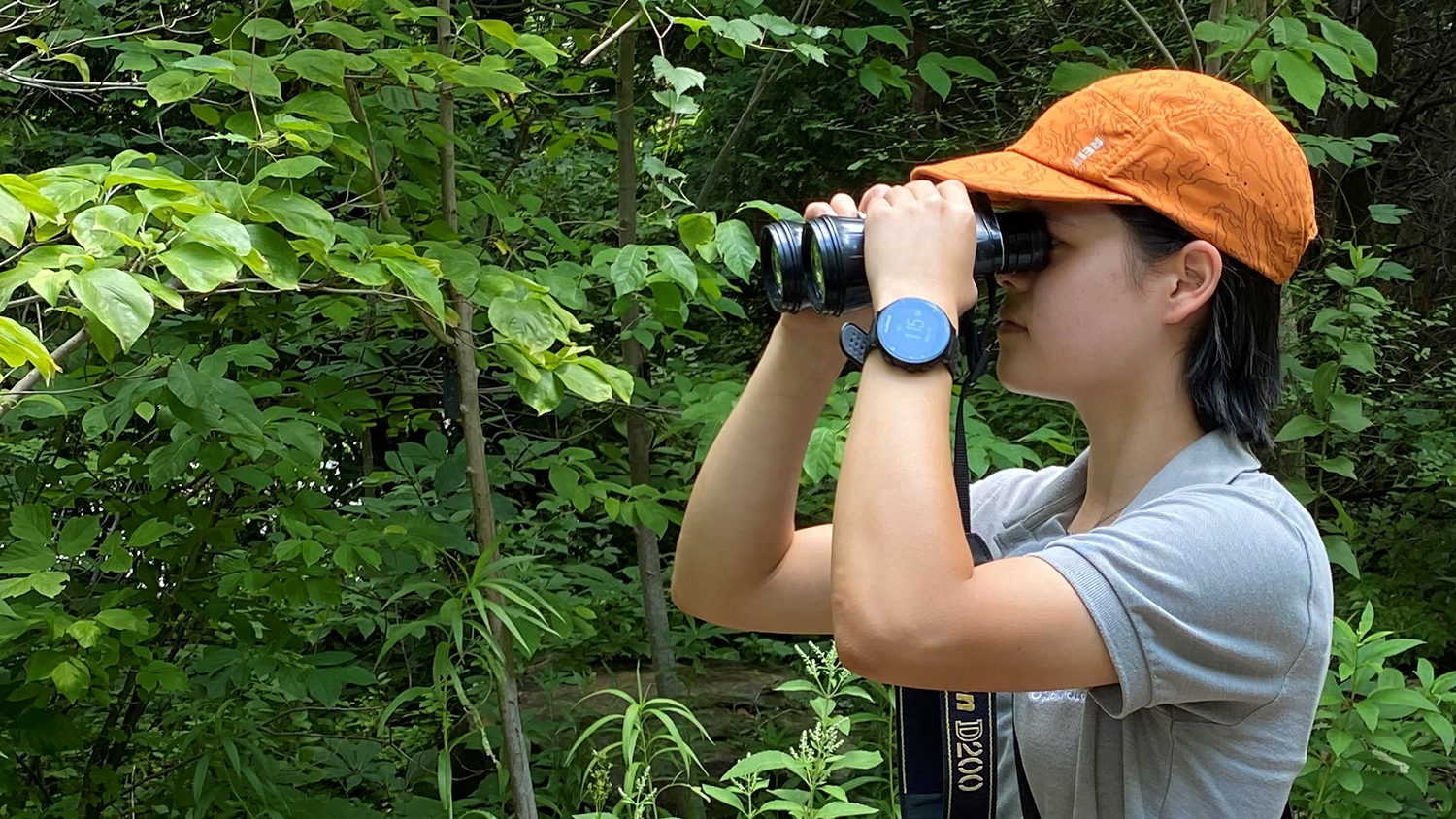This article is part of the Not Your Average Summer series highlighting the internship experiences of both undergraduate and graduate students from the NC State College of Natural Resources.
Kyla Marze is a senior majoring in natural resources with a concentration in ecosystem assessment. This summer, Marze served as a non-native invasive plant species intern at the Cincinnati Zoo and Botanical Garden in Ohio.
The Cincinnati Zoo and Botanical Garden houses more than 500 animal and 3,000 plant species. Founded in 1873, it is the second oldest zoo in the United States.
Check out the Q&A below to learn more about Marze’s experience at the zoo and the role of the College of Natural Resources in preparing her for the internship.
What were the primary responsibilities of your internship?
I worked in the horticulture department, and the purpose of my internship was to identify, map, and control the non-native and invasive plant species found in the gardens. A substantial portion of my job was to walk around the zoo and map out the locations and sizes of each species. When I was not mapping, my time was spent researching control methods, creating informational documents and performing removals.
How did you find out about the internship and why were you interested in it?
I was looking at the jobs listed on the Association of Zoos and Aquariums website to see if there were any animal care internships I would be interested in and I found this internship listing there. I applied because I had previous horticulture experience, as well as experience identifying and mapping non-native and invasive plant species through a class project. I wanted to learn more about invasive plants in an urban setting to see if a career in this specialty was something I would enjoy doing in the future.
In what ways did the College of Natural Resources prepare you for this internship?
The College of Natural Resources provided me with the tools necessary for succeeding in this internship. The courses I have taken gave me a foundation of knowledge that has benefited me tremendously this summer. Dendrology, especially, gave me a background in plant identification skills that has been incredibly useful during this internship. The faculty are also very receptive to any questions that students have about school or careers.
What are your long-term goals and how does this internship factor in?
This internship gave me direct experience learning about different plants, insight into a horticultural work environment, and the ability to work in a public garden space. Through this internship, I was able to speak with people working in plant research and plant records, and I learned that I really enjoy organizing data and information. I plan to complete a master’s program and explore a career in collections management to eventually work at an herbarium, museum or botanical garden in the future.
What’s the most important thing you’ve learned while at NC State?
The most important thing I have learned while at NC State is to take every opportunity that you can. Career exploration has been an important part of my college experience. I started out as an engineering major, and a huge factor in me switching to the College of Natural Resources was because of the people I directly talked to. Now, after networking with people in various natural science fields and seeking out different volunteer and internship opportunities, I have a fairly good understanding of the direction I want to take after college. It’s important to explore anything of slight interest to you because learning something in class is different from experiencing those subjects firsthand.
- Categories:



